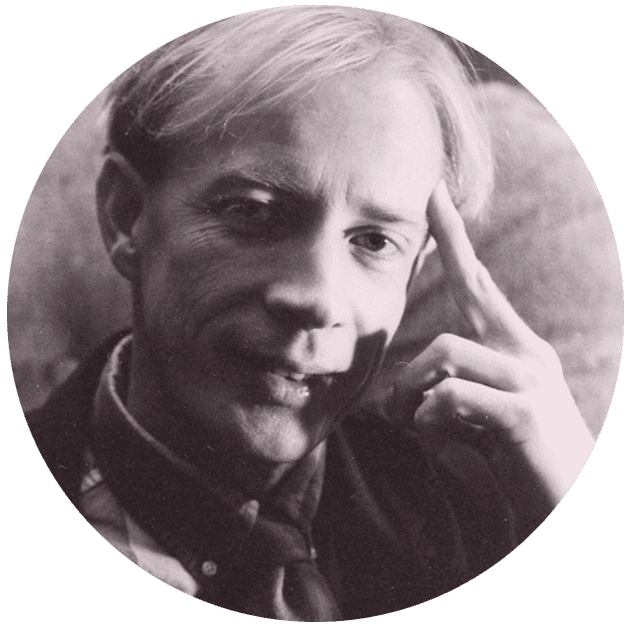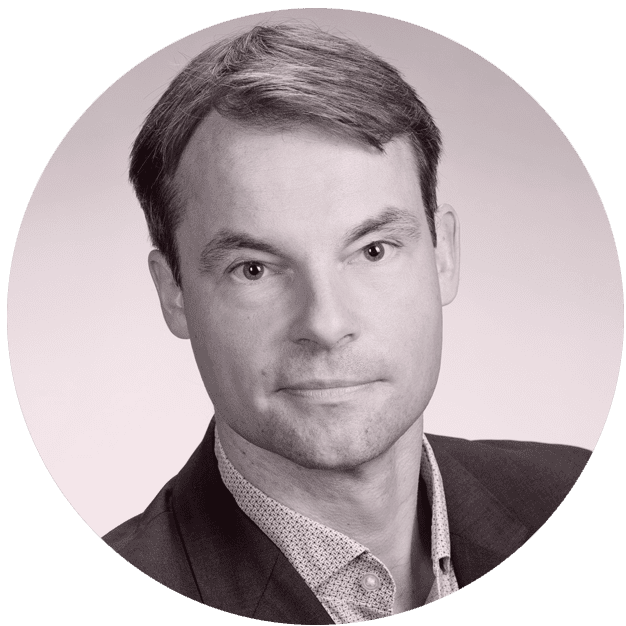
About
Daseinanalysis is a form of therapeutic encounter the goal of which is the optimal freedom and openness of the analysand’s existence (Dasein) or being in the world. It is effective with young people as well as adults.
Daseinanalysis borrows from psychoanalysis the use of the couch, an emphasis on dreaming life, and the invocation of the fundamental rule to speak openly with the guarantee of complete confidentiality. It abandons Freud’s metapsychology, however, and is not concerned with understanding the analysand’s past as the cause of current suffering or with invisible events said to be taking place within a hypothetical entity known as the psyche. Unlike psychoanalysis, it understands ‘analysis’ not in the sense of the dissecting of a whole into its parts but rather as a loosening of existence from moorings to which it has become tied and is, as a result, limited in its existing to a greater or lesser extent.
There is no daseinanalytic technique. Its medium is conversation, which provides a space for the existence of the analysand to recover his or her present and all that it includes, such as memories of the past and plans for the future. The daseinanalyst provides an opening for the analysand’s realization of possibilities of living inherent in his or her existence. The analysand takes the lead and shapes the conversation in the therapeutic setting. In order to help the analysand reach his or her optimal degree of freedom to choose or not choose from the possibilities available to them, the analyst accompanies the analysand in a therapeutic partnership.
The formal constitution of the American Daseinsanalytic Institute (ADI) in New York City on August 16, 2021.
Preparation
The American Daseinsanalytic Institute (ADI) offers a four-phase sequential preparation program leading to certification in daseinsanalytic practice: introduction to daseinsanalysis, daseinsanalytic theory, daseinsanalytic practice, and certification. Program years are not calendar years, since the certificate program is part-time and many candidates take breaks from the program given other professional commitments. For most candidates, six calendar years are required to complete program requirements. Others will require more time; some may require less than six calendar years.
1. Introduction to Daseinsanalysis [First Program Year]
The introductory program is usually completed in about one calendar year and takes place predominantly online. Students must regularly attend lecture courses and seminars on the theory and practice of daseinsanalysis. The required preliminary teaching analysis of about 50 hours usually begins concurrently in the first year. It always begins with in-person sessions.
2. Daseinsanalytic Theory [Second and Third Program Years]
This part of the program is usually completed in about two calendar years. Students continue to attend lecture courses, seminars and related conferences on the theory and practice of daseinsanalysis. Students who complete the theoretical program must pass an in-person oral examination. After the third program year, a preliminary certificate may be obtained.
3. Daseinsanalytic Practice: Practice, Supervision, and Scholarship [Fourth and Fifth Program Years]
The next phase of the program is usually completed in about two calendar years. Candidates are now prepared to apply insights of daseinsanalytic theory in appropriate settings (clinic, hospital, private practice) with the candidate's own analysands. About 600 hours of such experience is considered adequate to meet this requirement. Some previous clinical experience may be credited for advanced applicants for up to 400 hours. Mentoring (supervision) with a daseinsanalyst is begun during the early part of the practice phase of the program. Candidates are expected to read widely in the daseinsanalytic literature.
4. Certification as a Daseinsanalyst [Sixth Program Year]
In the final program year, candidates complete their supervision of about 100 hours
and their teaching analysis, which is usually about 150 hours beyond the preliminary
analysis of about 50 hours. They now also complete their practical externship work
begun earlier. The final certificate is obtained after written and oral examinations and
the presentation of two papers, a case discussion and a theoretical paper, one of
which should be suitable for publication.
Given the wide range of experience of individuals who apply for candidacy and the
varying amount of time they have to participate in the certificate program, each
applicant's situation is considered as unique. Program requirements remain
consistent in order of experience, but the actual calendar time required to complete
them will vary from candidate to candidate.
Any fees for course work, seminars, conference attendance, the teaching analysis
and supervision will be communicated by the ADI faculty on an individual basis
CURRICULUM
Seminars directed by the faculty of the American Daseinsanalytic Institute focus on topics relevant to the history, philosophical grounding, theory, and practice of daseinanalysis. Currently, four seminars are offered. The following course catalogue includes a bibliography of required readings for each seminar.
The Zollikon Seminars (2 hours)
Readings in Daseinanalysis (2 hours)
Selected Topics (90 minutes)
Heidegger for Therapists (1 hour)
The two-hour seminars are repeated on a rotating basis to accommodate the rolling admissions nature of the Institute. They are given regularly throughout the year on a bi-weekly basis, with short seasonal breaks, and are textbased. The 90-minute seminars consist of six sessions and are usually given once but may be repeated as required, depending on the topic. They are also text-based. The one-hour seminar is given bi-monthly, alternating with the twohour seminar. It offers a forum for the discussion of key issues in daseinanalytic practice and also meets throughout the calendar year. Candidates are required to attend all seminars in order to successfully complete their individually tailored program years in which the four-phase preparation requirements are met, usually in six calendar years.
Therapy
People are sometimes in situations where they do not seem to belong to their own life. Things seem lost to them. Daseinanalysis offers a situation for gaining deeper insight into one's possibilities of living. Its focus is on the inherent freedom of one's existence (Dasein).
For some introductory videos on Daseinanalytic therapy, please visit YouTube.
current
The ADI is welcoming all interested to attend our ADI Welcome Event to be held on 10 June 2025. If you would like to learn more about ADI and meet the faculty please consider attending. For more information please email our office below or look for our posted invitation on Instagram (adi.daseinsanalysis) or Facebook (https://www.facebook.com/groups/219384076530362).
As of December 2025, eleven candidates and four auditors from six countries in Europe, the Americas and Asia are at various stages of their daseinanalytic formation in the Institute.
Since its founding, regular seminars have been held by Miles Groth on topics including:
* the theoretical background of daseinanalysis in philosophy
* aspects of daseinanalytic therapy as practice.
Instruction is also provided by lecturers from other daseinanalytic institutes.
Each candidate is in a teaching analysis with either Miles Groth or Tamás Fazekas. Daseinanalysis always begins in person but may continue online after a period of time.
Daseinanalytic supervision is regularly held by Miles Groth and Tamás Fazekas for candidates seeing individuals in their work as psychotherapists, counselors, and psychiatrists.
archive
Conversations between Professor Miles Groth and Rafi Miętkiewicz
This section presents complete transcripts of in-depth dialogues between Professor Miles Groth and Rafi Miętkiewicz for the American Daseinsanalytic Institute. These full transcripts are based on taped conversations. They preserve the depth, nuance, and intimacy of thinking that defines the spirit of the Institute. Each dialogue explores one or more central questions of Daseinsanalysis. The section then forms part of the Institute’s growing archive — a space for sustained reflection and study. The conversations will be made available as a podcast series in the near future, extending their reach to a wider audience of listeners and scholars.
Conversation One: On Gelassenheit
In this exchange, Professor Miles Groth and Rafi Miętkiewicz explore Gelassenheit — Heidegger’s call to “let be” — as a fundamental disposition of freedom and therapeutic presence. What begins with a reflection on a single word unfolds into a meditation on composure, care, and the human capacity to dwell without control.
Conversation Two: On Discovering Phenomenology
In this wide-ranging dialogue, Professor Miles Groth and Rafi Miętkiewicz trace the origins and meaning of phenomenology — from Husserl’s study of conscious experience to Heidegger’s radical shift toward being-in-the-world. Through personal stories, philosophical clarity, and clinical insight, they explore how the phenomenological attitude transforms therapy, presence, and the way we understand human suffering. What emerges is a living picture of phenomenology as practice: an opening to the world, to the other, and to ourselves.
Conversation Three: On Boss’s Monograph “Anxiety, Guilt, and Psychotherapeutic Liberation”
In this episode, we explore one of the foundational texts of Daseinanalysis. Together with Professor Miles, we examine why the English title misleads, how Angst and Schuld function as positive existential powers, why Boss rejected psychodynamic causality, and how therapeutic Eros opens a person to freedom. We also look at his notion of “boredom neurosis,” a phenomenon that feels even more contemporary today than it did in 1962.
Faculty

Miles Groth PhD, Professor (Emeritus)
Founder & President
Dr. Groth (born 1946) is a Professor Emeritus in Psychology at Wagner College. He has published on daseinanalysis and Continental philosophy. Dr. Groth has specialized in daseinanalysis with adolescents and young adults.

Tamás Fazekas MD PhD
Founder & Vice-President
Dr. Fazekas (born 1971) is a daseinsanalyst, pediatrician and philosopher in Vienna, Austria. As daseinsanalyst he is specialized in neurotic disorders and psychosomatics.
Contact
Please contact us for a membership.
ADI - American Daseinsanalytic Institute
Professor Miles Groth: mgroth@wagner.edu
Office: office@daseinsanalysis.org
Instagram account: adi.daseinsanalysis
